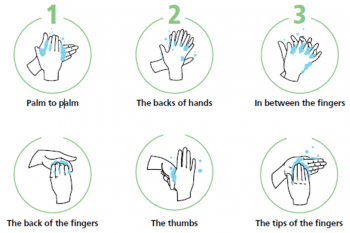Stay Safe and Stay At Home
Stay at home
The single most important action you can take is to stay at home in order to protect the NHS and save lives.
You should only leave the house for very limited reasons: shopping for basic necessities, for example food and medicine, as infrequently as possible one form of exercise a day, for example a run, walk, or cycle - alone or with members of your household any medical need, including to donate blood, avoid risk of harm, provide care or help a vulnerable person travelling for work purposes, but only where you cannot work from home These are exceptions – and when doing these activities, you should minimise time spent outside of the home and ensure you are 2 metres apart from anyone outside of your household. Critical workers, and parents of vulnerable children, may leave the house to take their children to and from school or their childcare provider. More detail is available online. Children can be moved between homes if their parents live separately. Help stop the infection spreading and support each other: wash your hands with soap and water often – do this for at least 20 seconds cover your mouth and nose with a tissue or your sleeve (not your hands) when you cough or sneeze put used tissues in the bin immediately and wash your hands afterwards don’t touch your eyes, nose or mouth if your hands are not clean clean and disinfect frequently touched surfaces and objects in your home, such as door handles and taps shop responsibly, follow advice in stores, and only buy what you need for yourself and your family, and those you’re supporting
How to wash your hands with soap and water for at least 20 seconds Image showing how to wash hands:
1. Palm to palm,
2. The backs of hands,
3. In between the fingers.
4. The back of the fingers,
5. The thumbs,
6. The tops of the fingers.
Symptoms You may have coronavirus if you have either of the following symptoms, however mild: a high temperature a new, continuous cough Anyone who has these symptoms must stay at home until the symptoms have ended, and in all cases for at least 7 days.
Everyone else in the household must stay at home for at least 14 days after the first person’s symptoms appear, even if they themselves do not have symptoms. If anyone else develops symptoms during that time, that individual must stay home for an additional 7 days from when they developed symptoms. Once 7 days have passed and provided symptoms have ended, they no longer need to isolate.
Do not go to a GP surgery, pharmacy or hospital. Use NHS online services.
Only call 111 if you are not able to get online, you have been instructed to call, or your symptoms worsen.
Call 999 if you have a serious or life-threatening emergency, and tell the call adviser if you have coronavirus symptoms.
An example of how coronavirus can spread in a household
Person A develops symptoms, triggering 7 days of isolation for herself and 14 days for others in her household.
Person A’s isolation ends after 7 days, if her symptoms have stopped. From the time person A first develops symptoms:
person B develops symptoms on day 3 so they must isolate for 7 days from day 3 person B’s isolation ends on day 10, as long as their symptoms have stopped by day 9 person C has no symptoms so their 14-day isolation ends on day 15 person D develops symptoms on day 13. Their 7-day isolation starts on day 13 person D’s isolation ends on day 20, as long as their symptoms have stopped by day 19









































































